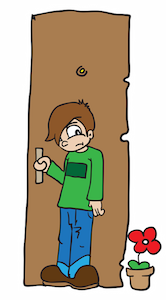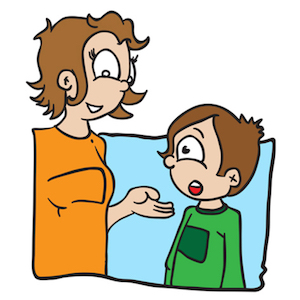5 Ways to Make Kids Hate Your Class

We’ve all read the rhetoric from self-styled school reformers perpetuating the myth of schools full of bad teachers. This has not been my experience. Most teachers I know are consummate professionals constantly striving to improve their practice.
Nevertheless, there are some ways that even the most talented teachers can undermine their own effectiveness. Unfortunately, it’s all too easy to slip into these bad habits that make kids hate coming into your class.
The best defense is a good offense, so it pays to be mindful of these ineffective teaching behaviors and avoid them when you can.
 1. Kids hate it when you over-control them
1. Kids hate it when you over-control them
Because teachers are the dominant force in sole charge of a classroom of children, it is easy to become controlling. Furthermore, when so much else in our day feels out of control, we tend to clamp down on the things we can manage. However, leading with a heavy hand causes resentment among students because they feel helpless.
If you want to make sure kids dread your class:
- deny them access to the restroom or a drink of water
- keep them after class causing them to be tardy for the next one
- get into power struggles with them in front of their peers
- yell at or punish the entire class when not all of them were causing a problem
2. Kids hate it when you neglect or ignore them

If you want to make sure kids dread your class:
- give preferential treatment to obvious “favorites”
- don’t bother to learn a child’s name or how to pronounce it
- call on the same children all the time without giving others a chance
- spend class time on your phone or computer rather than teaching
3. Kids hate it when you teach them badly

If you want to make sure kids dread your class:
- impose a strict deadline, yet take an inordinate amount of time to grade or return their work
- be easily distracted and go off on an irrelevant tangent instead of covering the material for which they will be responsible
- come to class unprepared and disorganized
- don’t accept responsibility for poor teaching and blame them for not studying
- give grades with little to no feedback or explanation
- use the same materials for years on end, regardless of the needs of the current class
4. Kids hate it when you blindside them

If you want to make sure kids dread your class:
- put trick questions on a test to “separate the As from the Bs”
- include material on a test that you did not cover or mention in class
- take points off of their work for minor infractions such as forgetting their name or a spelling error
- call on them when they appear to be off-task
- single them out in front of everyone
5. Kids hate it when you damage them

If you want to make sure kids dread your class:
- use sarcasm regularly
- participate in any kind of shaming (e.g., stapling fast food restaurant applications to a low-scoring test)
- compare them to other students, classes, or siblings
- reveal confidential personal information in front of their peers
- publicly berate them for small infractions such as not having a pencil
- tease them over sensitive issues
I can’t imagine that teachers do any of these things to their students intentionally, but they do happen. We are not perfect, but we can be cognizant of our own behavior. None of us wants to be the teacher kids hate.
When we chose teaching as a profession, we did so with the implicit understanding that we would not only teach but protect and nurture the hearts and minds of our students. Keeping our classroom practices positive and supportive will go a long way in achieving that life-long goal.
Cheryl Mizerny (@cherylteaches) is a veteran educator with 20+ years experience–most at the middle school level. She began her career in special education, became a teacher consultant and adjunct professor of Educational Psychology, and currently teaches 6th grade English in Bloomfield Hills, Michigan. Cheryl writes about student motivation and engagement at The Accidental English Teacher and is a regular contributor to the SmartBrief SmartBlog on Education. Read more of her MiddleWeb articles here.

 1. Kids hate it when you over-control them
1. Kids hate it when you over-control them


































This is my tenth year as a 7th grade teacher, and I can honestly say that I’ve been guilty of displaying some of the bad habits pointed out in this article. Middle school is definitely a struggle for students and teachers, but it can also be extremely rewarding work, especially when trust and respect is present between the student and teacher. I remember that during my first year as a teacher I was very controlling, especially on restroom use and going to drink water. I just thought the students wanted an excuse to get out of the class, but maybe that’s exactly what they needed in order to clear their minds and focus back on the lesson. I also singled out students, or punished the whole class for what one student had done. As an inexperienced teacher, I thought I was doing what all teachers do. But as the years went on and I gained experience in classroom management, and continued to refine my philosophy on education, I learned to let go of the control. I am more aware of student needs and how to create a safe learning environment. I always ask myself this question: what if my own children were students in this class? I would want the very best, and that’s how I reflect on whether my practices are in need of improvement. If we are mindful of our behaviors, then we’re on the right track. At the end of the day, we all want what is best for all students because they are the future of our nation and our world.
This is a great article! I teach a 5th-8th Self-Contained class for students with Social/Emotional Behavioral disorder and this is my philosophy! If students dislike being in your room because you treat them like prisoners or servants, why would they enjoy your class? so many of my students acted out in their previous classes because their previous teachers did not keep these five tips in mind. Once they arrive in my room, my students not longer exhibit those behaviors because they enjoy my class and want to be successful. Many teachers forgot they have to work TOGETHER with their students.
Thank you for posting this article!
Teresa Montemayor Stemen
I really enjoyed reading this! It is a great reminder to review often to see if I made a mistake in class and need to correct it before the classroom environment becomes toxic. This article also explains why I felt a certain way about many of my teachers. Thanks for sharing.